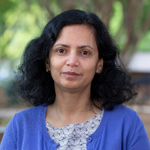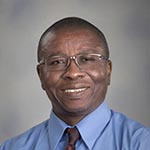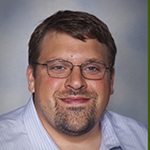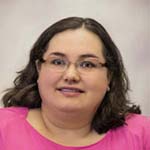South Carolina IDeA Networks of Biomedical Research Excellence
SC INBRE is funded through a $18.9 million grant from the National Institutes of Health (NIH) IDeA Networks of Biomedical Research Excellence (INBRE) and is comprised of 14 member institutions which aims to increase the research capacity in the biomedical sciences across the state. As a member institution, USC Upstate will receive more than $500,000 to support a summer research program called ER(Up)T (Engaged Research and Training at Upstate) from 2020-2025.
ER(Up)T: Engaged Research and Training at Upstate
ER(Up)T provides an opportunity for students interested in pursuing careers in the biomedical sciences (biology, chemistry, pre-professional) to participate in faculty-mentored research projects during the summer at USC Upstate. In addition to the faculty-mentored research projects, students will participate in enrichment activities that are designed to help inform and prepare students for opportunities in their chosen field. The ER(Up)T program will include multiple workshops designed to help students not only learn about exciting opportunities in the sciences but also build impressive applications and resumes for future professional, graduate school, and job applications.
ER(Up)T Student Scholars will:
- Engage in faculty-mentored research in the biomedical sciences
- Be PAID! for the full-time eight-week summer research internship
- Participate in career development workshops
- Present their research at local and regional conference
Click on plus button at the bottom of this Accordion BLOCK (not accordion tab) to create a new tab. Select Accordion TAB block to edit tab headline. Select nested blocks within accordion tab to edit content.
-

Applications opened January 13th, 2025 and will close February 21st, 2025.
Who is eligible?
Simply put – any continuing USC Upstate Student! Unfortunately, students graduating in Spring or Summer 2025 are not eligible.
The program is designed for students who are interested in pursuing careers in the biomedical sciences including biology, chemistry, and all pre-professional tracks (pre-med, pre-dental, etc.). If you are not sure about your future goals and want to know what opportunities there are with a biology or chemistry degree, apply for this program!
How do I apply?
Before you apply, we suggest that you discuss research projects with participating USC Upstate faculty that you may be interested in working with. This will greatly increase your chances to be selected into the program. It is advised that you should contact faculty members directly to schedule a meeting to further discuss research opportunities. You will be asked to rank your top two choices in the application – so please, reach out to multiple participating faculty mentors.
-
Below are the participating faculty, their contact information and introductory video, and a suggested email template.

Anita Nag, Ph.D.
[email protected]
Assistant Professor of ChemistryArea(s) of Research: Biochemistry
Dr. Nag’s research focuses on understanding protein-protein and protein-RNA interactions in host cells during a viral infection.

Anselm Omoike, Ph.D.
[email protected]
Associate Professor of ChemistryArea(s) of Research: Environmental & Analytical Chemistry
Dr. Anselm Omoike’s research involves coating magnetic iron oxide nanoparticles with specific reactive organic compounds and evaluating their potential applications for major allergens removal from peanut extracts and products. He also explores the desorption of adsorbed allergens on nanoparticles for specific allergen production.

Dr. Mahesh Dawadi
[email protected]
Professor of ChemistryArea(s) of Research: Performance enhancement of dye-sensitized solar cells, Photophysics of donor-acceptor organic compounds or polymeric materials, Photocatalytic degradation of pharmaceuticals wastewater, Computational chemistry.
Dr. Dawadi’s research project is based on an environmentally friendly, cost-effective, and sustainable strategy for removing problematic pollutants and microbes from wastewater. This strategy aims to protect natural ecosystems and public health. The specific objective of this project is to develop an innovative, stable, and cost-effective visible light-active photocatalyst for environmental and biological applications.

Joshua Ruppel, Ph.D.
[email protected]
Professor of ChemistryArea(s) of Research: Organic & Medicinal Chemistry
Dr. Ruppel’s research focuses on the synthesis of and development of methods to create glycoconjugated porphyrins, bacteriochlorins, phthalocyanines, and related macrocycles for biomedical applications such as photodynamic therapy.

Dr. Kimberly Shorter
Assistant Professor of BiologyArea(s) of Research: Effects of Excess Dietary Consumption of B-vitamins on Epigenetics and miR-718 Overexpression on Epigenetics
Dr. Shorter’s research group will investigate the effects of upregulating miR-718 on epigenetic marks and gene expression in 3 cell lines. This is part of a much larger NIH-R16 project that has been funded and will be a 3-month project, so please come speak to me about how this will work if you are interested!
Suggested Email Template
Dear [Faculty Member’s Name],
I hope this message finds you well. My name is [Your Name], and I am a [Your Major] student. I am writing to express my interest in learning more about research opportunities in your lab for summer 2025.
While exploring opportunities for the upcoming summer, I came across your participation in the 2025 ER(Up)T program. I am particularly interested in learning more about your research and the ways you involve students in your projects.
Would you be available to meet, either in person or virtually, to discuss this further? I am available on [list 2-3 specific dates and times], but I am happy to adjust if another time is more convenient for you.
Thank you for your time and consideration. I look forward to the opportunity to speak with you.
Best regards,
[Your Full Name]
[Your Major]
[Your Contact Information]
